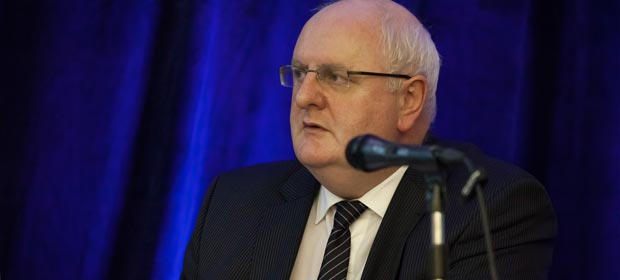Mr. Pat Healy, HSE National Director, Social Care, set out his vision in three years time for services for older people and people with disabilities, when he addressed the Conference.

Mr. Pat Healy, HSE National Director, Social Care, set out his vision for services for older people and people with disabilities in three years time, when he addressed the Conference.
He said there would be clear and comparable information and advice to make good decisions about their service and person centred models of care would be the norm, with ease of access to services.
People would be involved in developing their own care-plan based on standardised needs assessment which would focus on people’s strengths and personal goals.
The potential of local communities and social networks to sustain people in their own homes and communities would be maximised.
People would have increased control of their own resource through “money following the person” budgeting.
Service users and their local communities would be heard and involved in all stages of the process to plan and improve services.
Service users and their local communities would be heard and involved in all stages of the process to plan and improve services.
There would be a wider range of high quality options either through public, private or voluntary providers – choices would be available and people would be informed.
Mr. Healy said that two key components of his role involved:
Implementing extensive social care reform as part of a wider health system reform programme.
- Developing a new person centred model of care for older people and people with disabilities.
- Promoting independence and lifestyle choice as far as possible – from segregation to inclusion.
- Maintaining people at home or in their own community.
- A sustainable model – “money follows the person”.
- Managing service delivery on a day to day basis.
- Service Plan delivery within resources, targets and standards.
- Incremental performance improvement – embedding sustainable change
- Transitioning safely
Mr. Healy said there were a number of important Enablers of Change in ICT and shared services.
In ICT these included web enabled access for the public, good whole system data for planning, needs assessment, individualised budgeting and resource allocation models.
The shared services platform would provide consolidation and synergies. There were 3,000 service contracts with HSE, over 1,500 in social care and real opportunities to leverage the model to streamline its operation.
Mr. Healy said the HSE Directorate would need to support programme of change systems. The reform unit, led by Leo Kearns would be important in this respect.
He said they would be incentivising innovation towards the implementation of the reform programme, building a coalition of support with local communities, voluntary partners, staff and unions and the political system in this shared objective.

